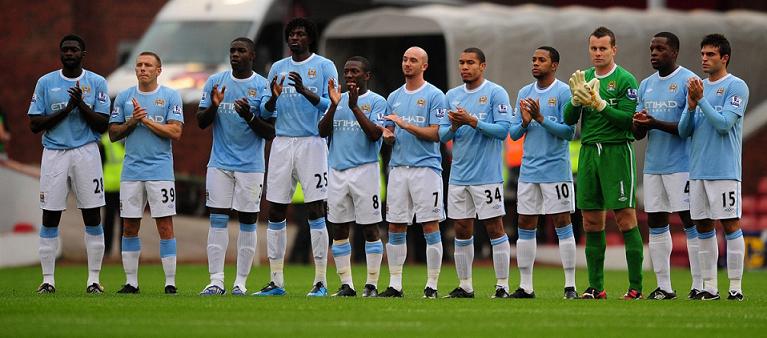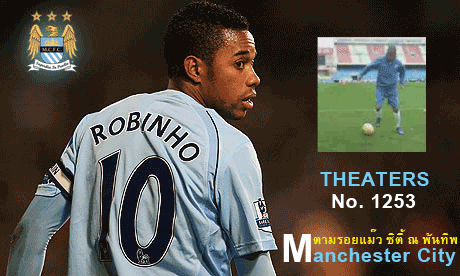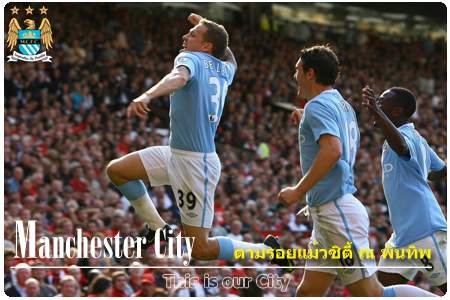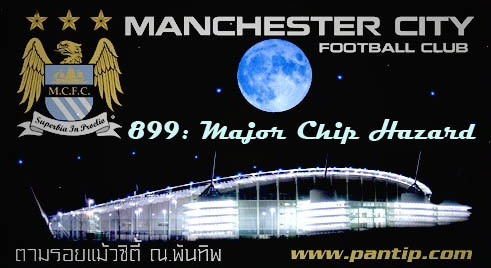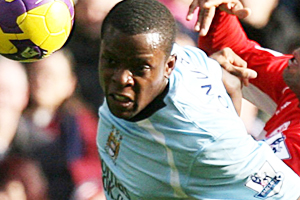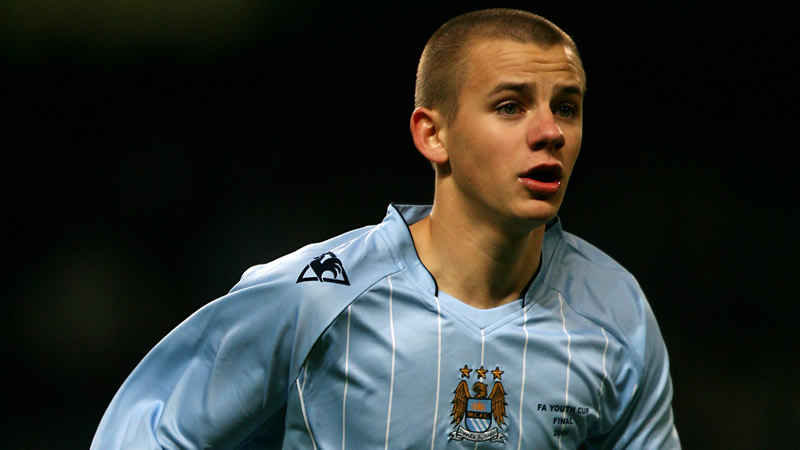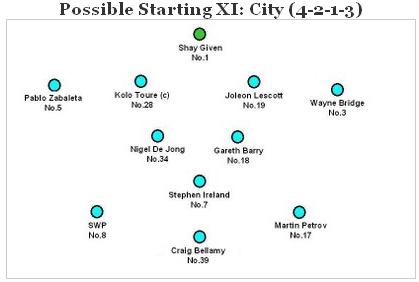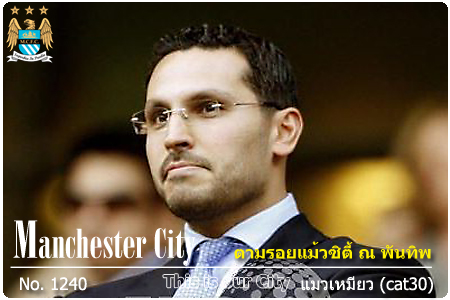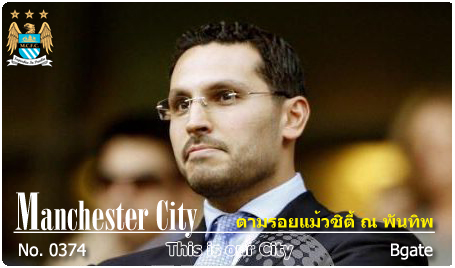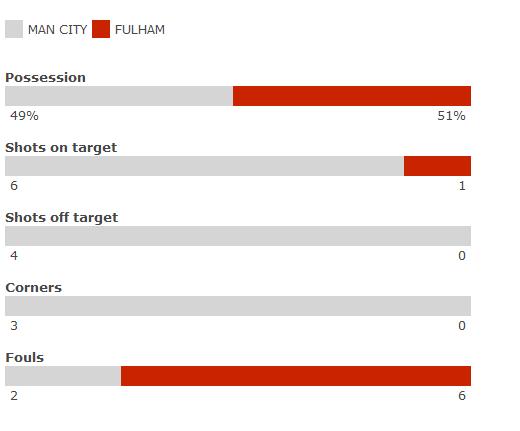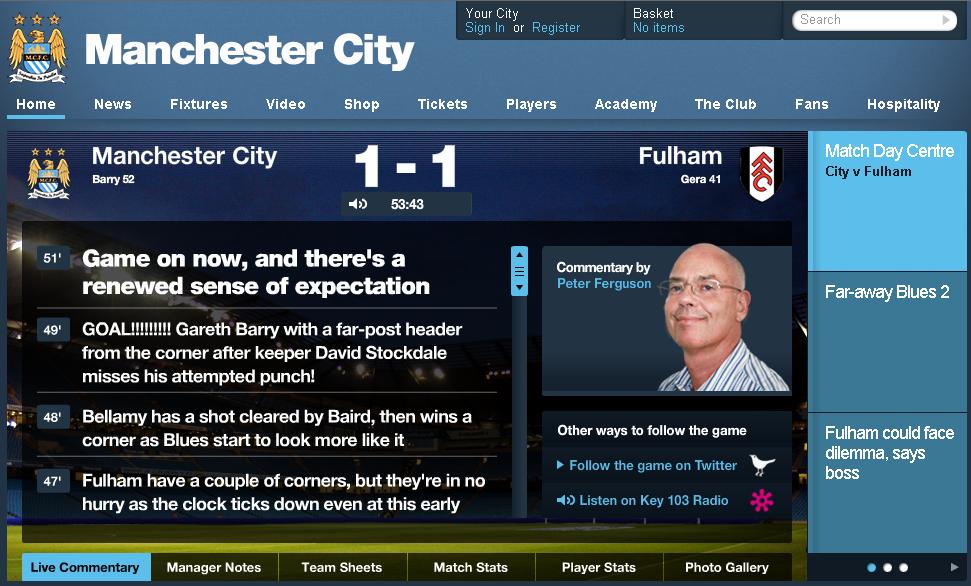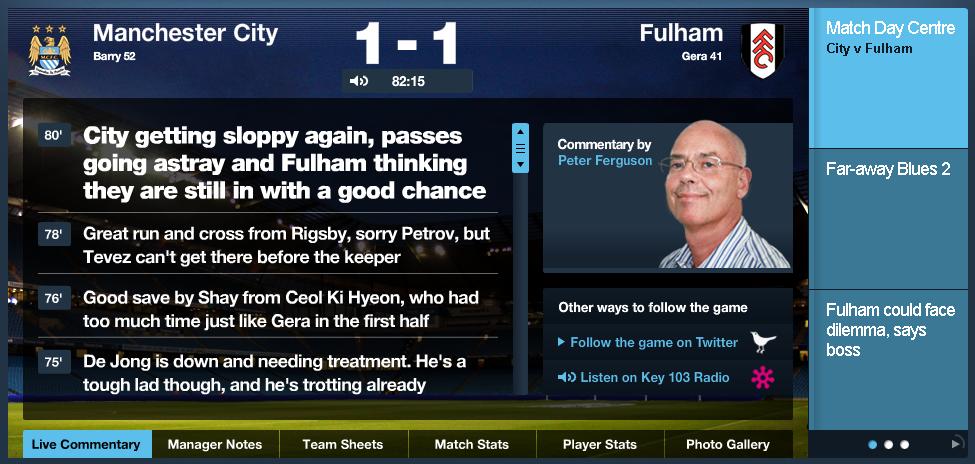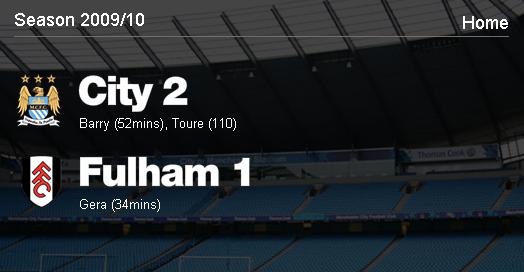 |
 ความคิดเห็นที่ 44
ความคิดเห็นที่ 44 |

เอาบทสัมภาษณ์ ประธานแมนซิมาให้อ่านครับ
จาก guardian.co.uk
รบกวนเพื่อนที่เก่งภาษาอังกฤษเก่งๆช่วยแปลให้หน่อยครับ
ผมแปลไม่เก่ง พออ่านรู้เรื่องบ้าง
เอา link มาให้ด้วยครับ http://www.guardian.co.uk/football/2009/sep/17/manchester-city-abu-dhabi-takeover
Manchester City's chairman, Khaldoon al-Mubarak, has strongly defended the reconstruction of the club and said only outside investment on such a scale could ever break the monopoly on success enjoyed by Europe's richest sides.
The Uefa president, Michel Platini, has singled out the expenditure at City since the takeover by Sheikh Mansour bin Zayed al-Nahyan, a senior member of the Abu Dhabi royal family, a year ago. City have spent more than £200m on 11 players since, which Uefa has condemned as an inflationary danger for clubs across European football.
Khaldoon, speaking exclusively to the Guardian at his home in Abu Dhabi for a wide-ranging interview discussing the City acquisition in depth, rejected the assertion that the enormous wealth being spent by the club's new owners represents a danger to football.
David Conn on Manchester City's sky blue land of riches
In pictures: David Conn's special report
In pictures: How Manchester City's takeover has unfolded
"I could accept the argument if we were artificially building up the club through debt," Khaldoon said. "That produces a destructive end result; we have seen that happen. But in our case, the club will be in the healthiest position because there is no debt. We have funded it through equity [permanent investment], including the signing of the players.
"I believe what we are doing is a fair way to inject competition into football, without debt."
Announcing "financial fair-play measures" before the Champions League draw in Monaco last month, Platini unveiled proposals to prevent clubs living beyond their natural means, whether due to borrowing, or investment from "sugar daddies". To compete in European competitions from the 2012-13 season, Uefa, supported by the European Club Association, proposes that clubs must be spending only what they earn from their television income, ticket receipts and commercial activities.
Karl-Heinz Rummenigge, chairman of Bayern Munich and the ECA, said this was part of a "battle for more rationality and discipline in football finances", saying Uefa's initiative would "start curing football".
Khaldoon said he had not yet seen the proposals in detail, but believed that curbing the freedom of owners to buy and invest in "mid-tier" clubs would deliver a monopoly on European success to the already richest clubs.
"The argument that this is unhealthy suggests that the big clubs, which make the most money, must remain the big clubs, that the status quo must remain," Khaldoon responded. "Is Mr Platini saying that only Real Madrid and Barcelona have the right to be competitive in La Liga?
Uefa's general secretary, David Taylor, today released figures showing a quarter of Europe's top division clubs made large losses last year, with the proportion higher in the Premier League. He blamed the "constant inflationary effect" of "huge spending on players". Platini, when announcing the "fair-play measures", explicitly mentioned City as a club spending beyond their true commercial strength, because of the huge sums of money made available by Mansour.
"Manchester City can spend £300m if they want to," the Uefa president said, "but if they are not breaking even in three years, they cannot play in European competition."
Khaldoon countered that in the absence of regulations, or a franchise system as in US sports designed to ensure financial and sporting equality between clubs, Mansour is bringing healthy competition into a game dominated by financial might. He pointed out, too, that English football clubs as currently constituted are businesses, available to be taken over.
"I appreciate the argument about having so much money," Khaldoon acknowledged. "The way I answer it is: Yes, this is a club, but it is a business too, and in business, you are there to compete. And we are striving to build the club the right way, with respect for its heritage, and the fans."
Speaking more broadly about the City deal in Manchester and Abu Dhabi, Khaldoon discussed Sheikh Mansour's original motivation for acquiring the club, explaining that Mansour is an enthusiastic football fan, and also believes it is a sound investment, because City will ultimately be worth more, when established as a top European club, than he will have spent.
The new owners are significantly expanding City's commercial operation they are thought to be questioning whether the 48,500-capacity City of Manchester Stadium will be big enough and after this initial period of major investment, their intention is that City will become financially self-sufficient.
Money has been spent not only on players but on facilities and new staff, at a club whose infrastructure Khaldoon found inadequate previously. He also reflected on how the City "project" has become entwined with Abu Dhabi's wider ambitions, to diversify the emirate's economy beyond oil, and present an appealing image to the world, rooted in enduring values.
Visit David Conn's Inside sport blog for an exclusive three-part series detailing the behind-the-scenes story of Abu Dhabi's takeover of the club, starting tomorrow
แก้ไขเมื่อ 23 ก.ย. 52 22:17:02
| จากคุณ |
:
c_kanok 
|
| เขียนเมื่อ |
:
23 ก.ย. 52 22:11:53
|
|
|
|
 |
